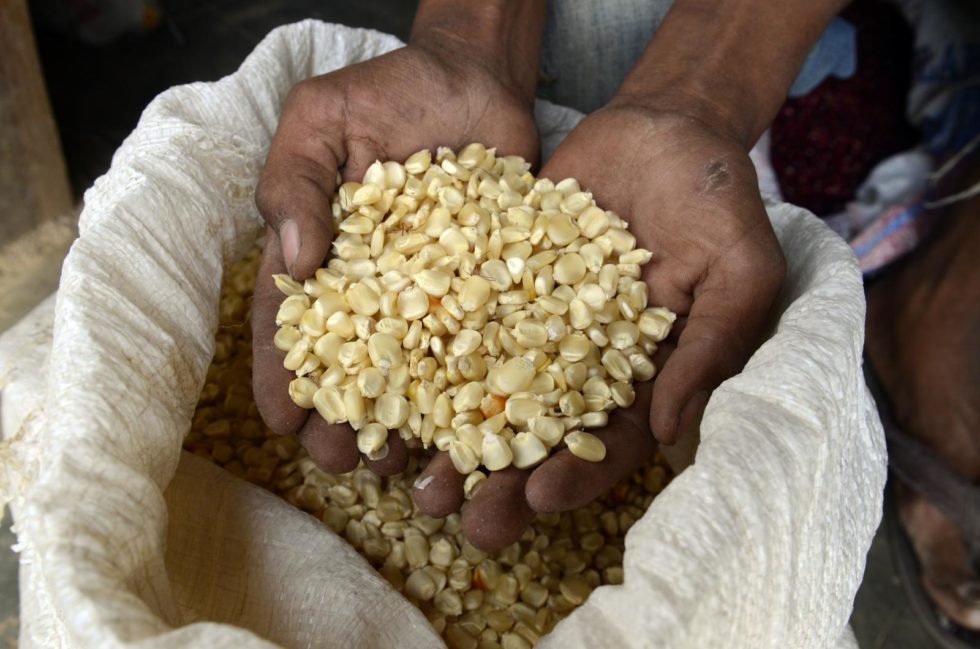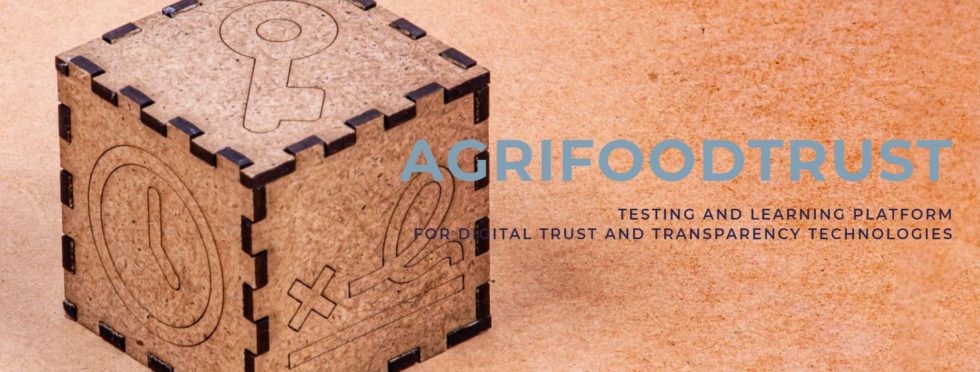Blockchain promises to revolutionize the economic system by changing the way we communicate over the internet. Though it is best known for tracking bitcoin, many researchers believe the digital trust technology can have positive social and environmental benefits through supply chains. This is one of the foundational principles of AgriFoodTrust, a testing and learning platform and knowledge base for digital trust and transparency technologies.
However, at the moment there is little research into the mechanisms by which blockchain implementations in the supply chain create these positive impacts, said Susanne Köhler, a doctoral student at Aalborg University, who is working to examine exactly how blockchain-based technologies can change supply chains for good.
Blockchain is a distributed ledger technology that allows the storing and exchange of assets and information between two entities globally in a secure, transparent and immutable way, without the need for a trusted centralized authority to authenticate parties and validate transactions. It offers the opportunity to revolutionize how we trust individuals and institutions and how we view contracts, certifications, land titles, medical records and personal data.
In the food system for example, blockchain is being used to improve trust by tracking information along the supply chain to curb the spread of counterfeit maize seeds in Africa.
As part of her research, Köhler is interviewing actors working with blockchain from a range of industries to further explore how this disruptive technology can be used to increase the resilience of individuals, communities and ecosystems. Her research is carried out at Aalborg University within the Sustainable Blockchain Technologies project financed by the Independent Research Fund Denmark – Social Sciences.
Köhler answered a few questions about her research.
Could you please explain the aim of your research? Who are you interviewing?
The purpose of this study is to discover the mechanisms by which blockchain-based technologies in the supply chain create positive social and environmental impacts. It has been claimed that blockchain will bring a variety of positive impacts, but it is unclear how and if the impacts are due to blockchain or another component in a system of technologies. We want to find out what the status-quo of blockchain-based technologies in the supply chain is, what impacts these implementations currently have and might have in the future, and how these impacts are generated. To do so, I am interviewing different actors involved in implementing blockchain-based technologies in supply chains such as technology developers, brands and NGOs. At this point, I do not focus on a specific industry.
What can we learn by comparing approaches to blockchain in different supply chains to improve social and environmental impact?
All blockchain-based implementations are different. They can differ in terms of system architecture, governance structures, implementation stage and environmental factors. Blockchain is a component in a system of technologies. One implementation may work with facial recognition to identify trusted producers and verify asset registration. Others may use registered mobile phones to enter assets to the blockchain. As the technology is still in its infancy and many implementations are in early stages, looking at different implementations can help us gain an understanding of blockchain’s overall potential. Each case can provide a different perspective that highlights how blockchain brings impacts. This helps to shape the larger picture. In turn, individuals can learn from this larger picture.

What barriers do projects face implementing blockchain in projects? How will your research help overcome these challenges?
Impact is defined as changes to specific targets such as human wellbeing or ecosystem wellbeing. It is important to measure these impacts in order to understand the gains of having a blockchain-based implementation and to help anticipate drawbacks before the technology scales up. Currently, few projects are measuring impact, because they are still in early stages. This means that we are working with few data, novel implementations, uncertain conditions and small-scale implementations. Therefore, we interview different projects and different kinds of actors – such as technology providers or brands. We want to understand blockchain-based technologies in the supply chain, gain an understanding of their benefits, and provide a scientific basis to explain how blockchain currently impacts supply chains and how it may do so in the future. This will help anticipate drawbacks, focus on developing the potentials for blockchain to be used to create impact, and communicate benefits more clearly. This knowledge may be important for overcoming regulatory and other barriers.
What do you aim to do with your results? Who will benefit?
The results will be published in a peer-reviewed journal ensuring scientific rigor. We want to contribute to the discussion of how blockchain creates positive social and environmental impacts. The results may support decision-making of various stakeholders including brands, technology providers and policy makers.
Can you tell us about the Sustainable Blockchain Technologies project?
Experts have claimed that blockchain will be a game changer in many different industries. It may even change the world we live in for the better. The Sustainable Blockchain Technologies project develops from this premise to investigate and anticipate the environmental and social effects of blockchain beyond the hype and with solid scientific basis. The main hypothesis is that while blockchain allows for secure, robust, and trustworthy solutions, and can bring clear improvements compared to current technologies in terms of traceability and transparency, this comes at a cost. Thus, the main objective of the project is investigating what environmental and social impacts blockchain will have as an alternative or substitute of currently available technologies. We look at this broad objective from two different perspectives. First, we conduct environmental assessments of blockchain technology itself. Second, we analyze blockchain potentials of applications in the supply chain.
This story was originally posted on the website of the CGIAR Platform for Big Data in Agriculture (https://bigdata.cgiar.org/).
Cover photo: Sita Kumari, farmer, uses mobile phone apps to enhance her yields and get access to market and labor. (Photo: C. De Bode/CGIAR)

 Gender equality, youth and social inclusion
Gender equality, youth and social inclusion 

